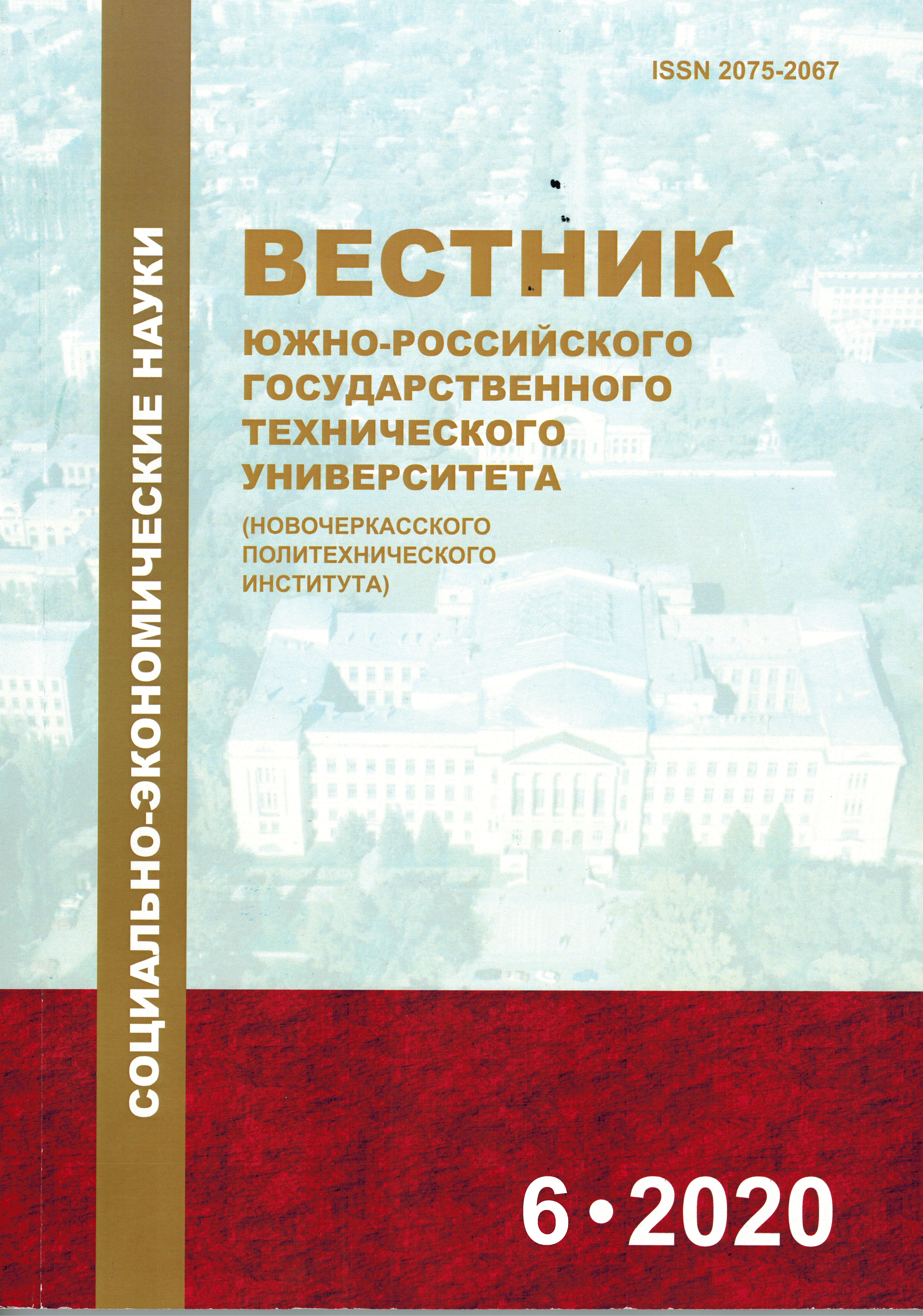ПЕРСПЕКТИВЫ РАЗВИТИЯ ЭКОЛОГИЧЕСКОГО ПОВЕДЕНИЯ РОССИЙСКОЙ МОЛОДЕЖИ В КОНТЕКСТЕ «ПОЗДНЕЙ» СОВРЕМЕННОСТИ
DOI:
https://doi.org/10.17213/2075-2067-2020-6-45-53Keywords:
youth; Russian society; ecological behavior; «late» modernityAbstract
The purpose of the study is to study the prospects for the development of environmental behavior of Russian youth in the context of «late» modernity.
The methodological basis of the research is a synthesis of modern methodological approaches: structural and functional institutionalism, «understanding» sociology(cultural sociology), risk-based and socio-reproductive areas of sociological research.
Research result. The ecological behavior of young people is closely dependent on cultural patterns of perception and attitude to their own natural environment. Greater attention to the environment will be most relevant, especially in large urban agglomerations that can invest sufficient funds in further environmental development. At the same time, the environmental behavior of young people, mainly representing the «middle» and sufficiently educated classes of society, will be aimed at the formation and further development of environmental culture.
Prospects of the study. The outlined trends in young people's perception of the environmental agenda may continue in the coming decades, while environmental behavior itself will be built in a realistic plane of constructing a culture of everyday life, including the rationalization of their own economic opportunities, including in connection with the arrangement of their own households.
References
Алилова К. М. Экологическая культура в контексте познавательной культуры // Гуманитарные и социально-экономические науки. – 2015. – №3 (82). – С. 30-33.
Бауман З. Индивидуализированное общество. – М.: Логос, 2005. – 390 с.
Гидденс Э. Последствия модернити // Новая постиндустриальная волна на Западе. Антология. – М.: Academia, 1999. – 640 с.
Гирусов Э. В. Восхождение к экологической культуре: необходимость и сущность // Библиотечное дело. – 2010. – №3 (117). – С. 6-11.
Инглхарт Р., Вельцель К. Модернизация, культурные изменения и демократия. – М.: Новое издательство, 2011. – 464 с.
Леви-Стросс К. Структурализм и экология // Первобытное мышление. – М.: Республика, 1994. – 384 с.
Лисеев И. К. Новый образ природы и новые ценности цивилизации сотрудничества и ненасилия // Философия. Биология. Культура (работы разных лет). – М.: ИФРАН, 2011. – С. 128–148.
Пригожин И. Р. Философия нестабильности // Вопросы философии. – 1991. – №6. – С. 47-52.
Трофимова Я. В. Формирование экологического поведения потребителя // Педагогический журнал Башкортостана. – 2014. – №2 (51). – С. 62-71.
Хоркхаймер М. Затмение разума. К критике инструментального разума. – М.: «Канон+» РООИ «Реабилитация», 2011. – 224 с.
Штомпка П. Социология. Анализ современного общества. – М.: Логос, 2010. – 664 с.
Ячменев В. А. Устойчивое развитие: взаимосвязь экологической и социальной культур // Социум и власть. – 2017. – №5 (67). – С. 7-13.
Duong Thi Huong. Ecological Culture and Educational Issue of Ecological Culture – Motivation for the Human Development // American Journal of Educational Research. – 2018. – №6 (6). – P. 694–702.


